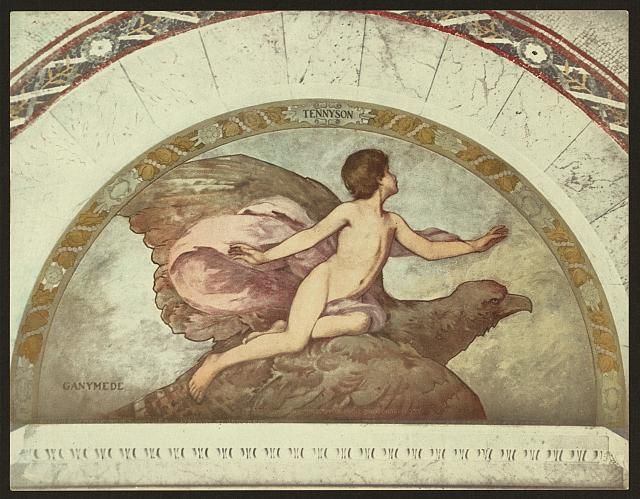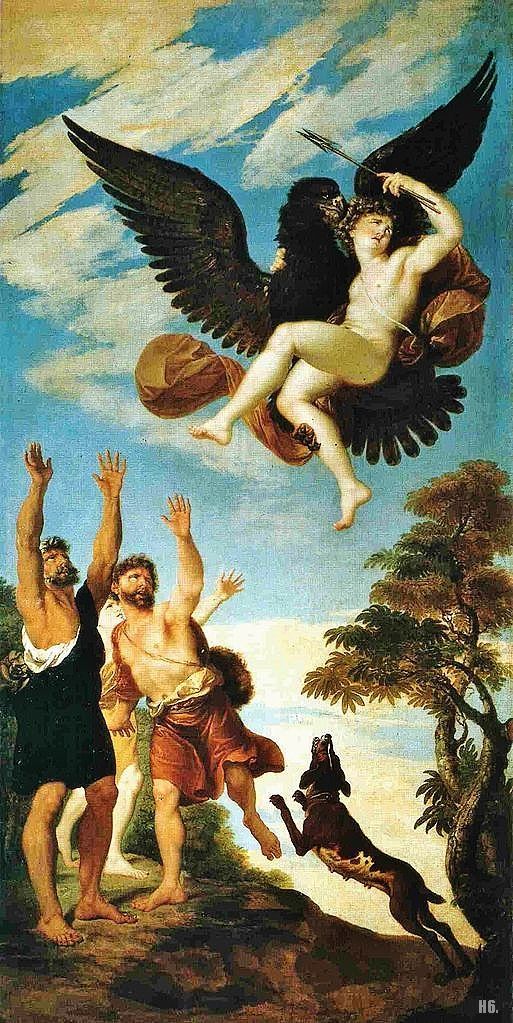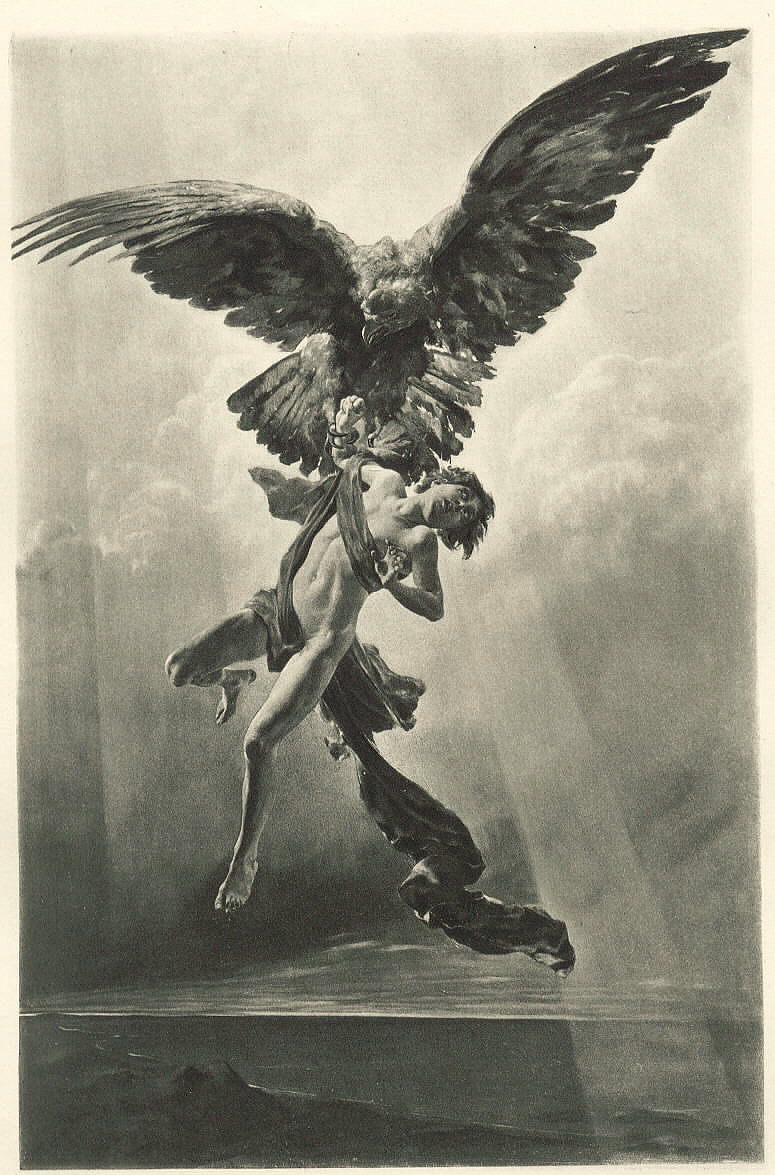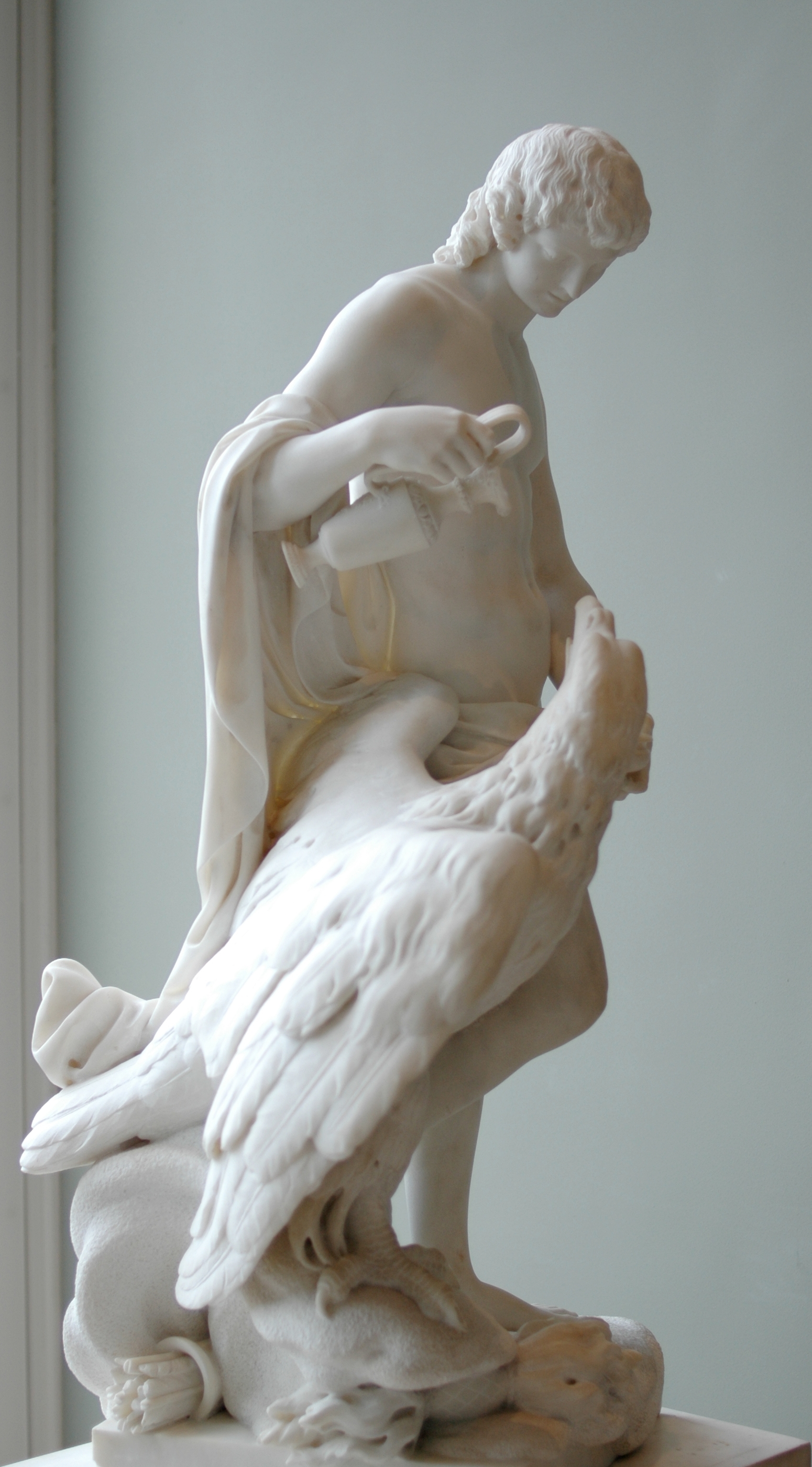The Influence of Myth
Ganymede
A man trades his son for horses.
That’s the version I prefer. I like
The safety of it, no one at fault,
Everyone rewarded. God gets
The boy. The boy becomes
Immortal. His father rides until
Grief sounds as good as the gallop
Of an animal born to carry those
Who patrol our inherited
Kingdom. When we look at myth
This way, nobody bothers saying
Rape. I mean, don’t you want God
To want you? Don’t you dream
Of someone with wings taking you
Up? And when the master comes
For our children, he smells
Like the men who own stables
In Heaven, that far terrain
Between Promise and Apology.
No one has to convince us.
The people of my country believe
We can’t be hurt if we can be bought.
Brown, Jericho. The Tradition. Copper Canyon Press, 2019, p.1.
“100 Notable Books of the Year,” The New York Times Book Review
Finalist, 2019 National Book Award
Winner, 2020 Pulitzer Prize for Poetry
Ganymede (Latin: Catamitus) was the son of Tros, king of Troy. Because of his unusual beauty, he was carried off by Zeus, disguised as an eagle, to serve as cupbearer. In compensation, Zeus gave Ganymede’s father a stud of immortal horses. Ganymede was loved by all the gods except Hera, who was jealous of Zeus' desire for him. Eventually capitulating to her, Zeus turned Ganymede into a constellation, Aquarius, the water-bearer.
The earliest forms of the myth have no erotic content, but by the 5th century BCE, at the beginning of the Classical period in Greece, it was believed that Ganymede’s kidnapper was full of lust for him. Ganymede’s abduction was a popular topic for illustration on 5th-century Attic vases. The English word catamite (a boy kept by a pederast for sexual purposes) was derived from the popular Latin form of his name.
. . . For they
Are descended from those very horses that far-seeing Zeus
Gave Tros by way of repayment for carrying off
His dear son Ganymede, since of all horses on whom
The dawn broke and the bright sun shone, they were the best.
The Iliad, Book V
And Tros had three matchless sons—Assaracus, Ilus,
And godlike Ganymede, the best-looking boy ever born,
So handsome the gods caught him up to Olympus, that he
Might live with them there and be the cupbearer of Zeus.
The Iliad, Book XX
In Ovid’s Metamorphoses, Book X, Orpheus, after losing Eurydice, then winning her from Hades, then losing her again, sings to the trees, animals, and birds:
Such was the grove of trees the poet gathered round him, and he sat in the midst of a crowd, of animals and birds. When he had tried a few chords, stroking the lyre with his thumb, and felt that the various notes were in tune, regardless of their pitch, he raised his voice to sing: “Begin my song with Jupiter, Calliope, O Muse, my mother (all things bow to Jupiter’s might)! I have often sung the power of Jove before: I have sung of the Giants, in an epic strain, and the victorious lightning bolts, hurled at the Phlegraean field. Now there is gentler work for the lyre, and I sing of boys loved by the gods, and girls stricken with forbidden fires, deserving punishment for their lust.
The king of the gods once burned with love for Phrygian Ganymede, and to win him Jupiter chose to be something other than he was. Yet he did not deign to transform himself into any other bird, than that eagle, that could carry his lightning bolts. Straightaway, he beat the air with deceitful wings, and stole the Trojan boy, who still handles the mixing cups, and against Juno’s will pours out Jove’s nectar.”
In ancient Greece and Rome, a catamite was a pubescent boy who was the intimate companion of a young man, usually in a sexual relationship. It was generally a term of affection and literally means “Ganymede” in Latin, but it was also used as an insult when directed toward a grown man.
Pederasty in ancient Greece was a socially acknowledged romantic relationship between an adult male (the erastes) and a younger male (the eromenos), usually in his teens. Sources vary as to how common this type of relationship was, but the literature does trace the height of this social norm to the Archaic (8th century BCE - 480 BCE) and Classical periods (5th and 4th centuries BCE) in Greece. The influence of pederasty on the culture of these periods was so pervasive that it has Doyne Dawson called it “the principal cultural model for free relationships between citizens.”
Pederasty was both idealized and criticized in ancient literature and philosophy. Historians have recently argued that this relationship was widely, if not universally, idealized during the Archaic period, but criticism of it began in Athens during the Classical period, as they reconsidered the legacies left to them by their ancestors.
Ganymede has been a popular subject for artists, even in times when homosexuality was condemned socially.

A fresco from the US Library of Congress

Julien de Parma's The Rape of Ganymede, 1778

Frank Kirchbach's The Rape of Ganymede, 1892

Pierre Julien's Ganymede Pouring Nectar to Zeus Changed into an Eagle, 1776